While the Olympic flame was blown out by 6 athletes from 5 continents and the refugee team at Stade de France, the 2024 Paris Olympics officially drew its curtain on August 11 (local time).
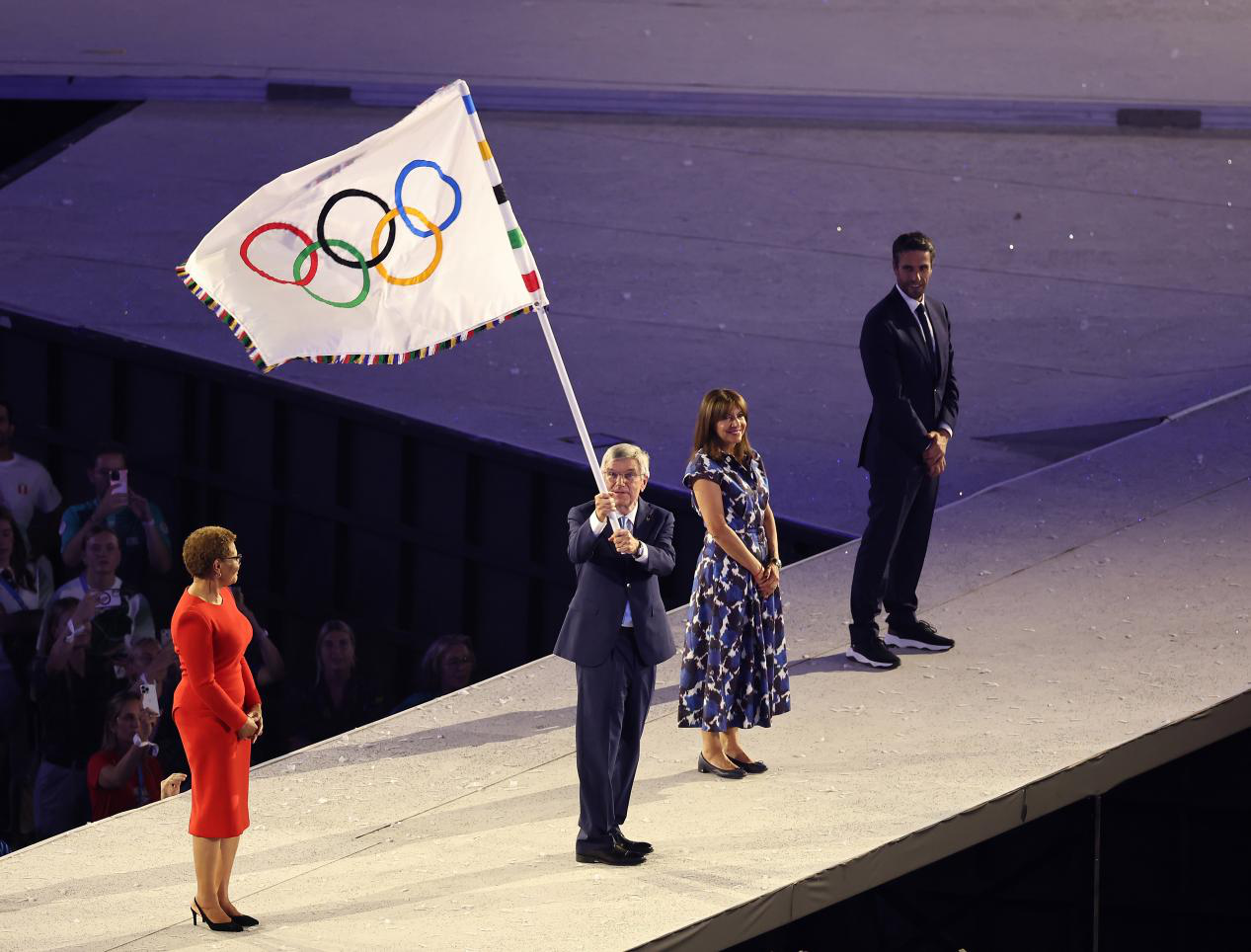
Los Angeles will host 2028 Olympic Games. (Photo: Xinhua)
The 2024 Olympics left a great number of wonderful moments for audiences all over the world, such as breaking world records, friendship between athletes, and dark clouds of the US doping scandal.
"Doping" became a high-frequency word in the Paris Olympics. At the same time, the purple face phenomenon of American swimmers after the race also attracted widespread concern and discussion.
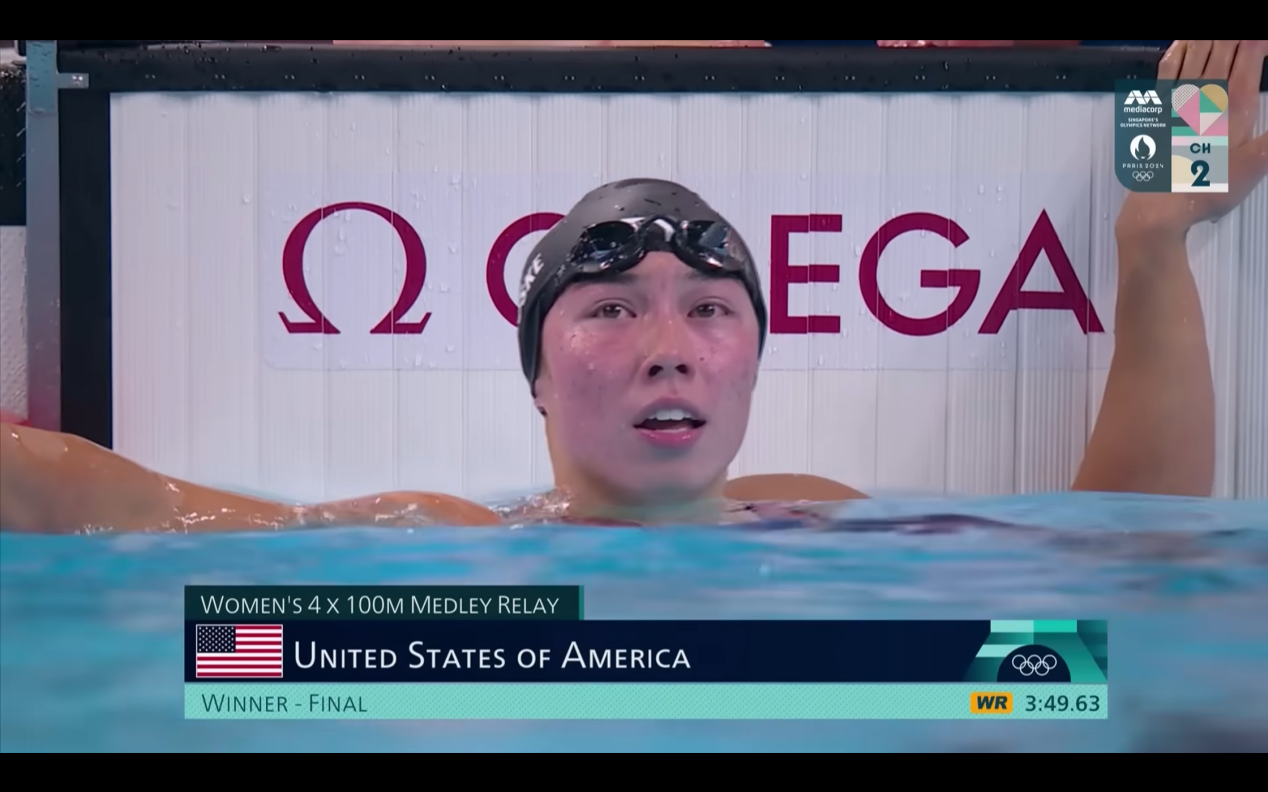
The purple face phenomenon of American swimmers (Source: live screenshot)
US threatened WADA: double standard in the US style
On August 7, Reuters reported that the United States Anti-Doping Agency (USADA) had made doping-positive athletes "undercover agents" under the condition that they would be exempted from penalties and continue to compete, which triggered a worldwide controversy.
In response, WADA condemned the US violation of the practice, saying in a statement published on the same day, "WADA is now aware of at least three cases where athletes who had committed serious anti-doping rule violations were allowed to continue to compete for years while they acted as undercover agents for USADA, without notifying WADA and without any provision allowing such a practice under the Code or USADA's own rules."
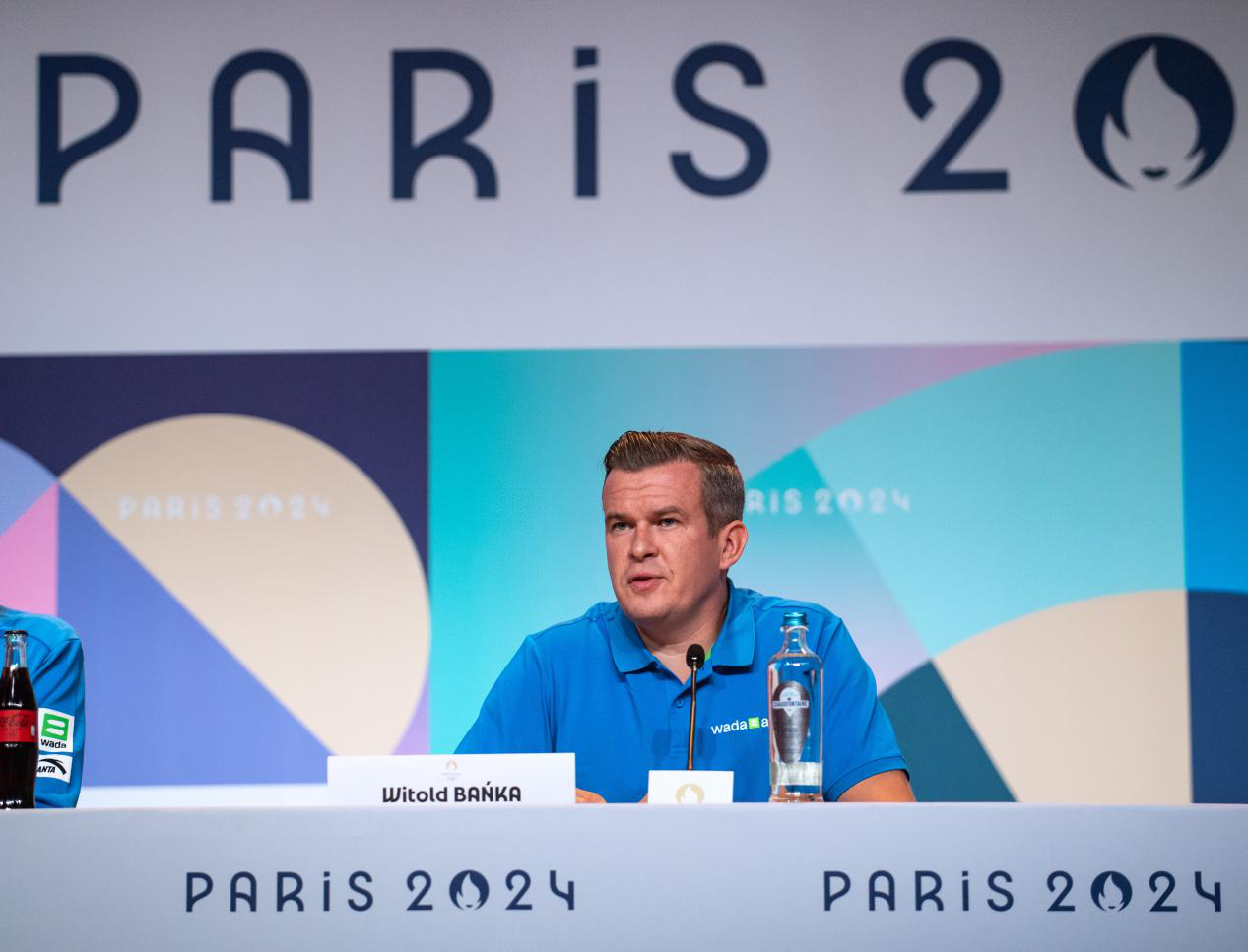
Witold Banka, WADA President at the Press Conference of the Paris 2024. (Source: Xinhua)
In fact, before the Paris Olympics, as the largest donor of WADA, the US had threatened WADA to conduct necessary "reform," or they would cut the budget worth nearly 3.7 million US dollars, as they thought WADA took sides with China's swimmers.
The US also threatened to detain WADA's president for his decision to exempt 23 Chinese swimmers.
"United States' unilateral approach to anti-doping rules threatens to undermine global rules," said Witold Banka, WADA President.
Are the athletes from the US really clean on the field?
In 2016, a Russian-based group called "Fancy Bears" published breaking news about US athletes on anti-doping.
Fancy Bears discovered that in 2015, 653 American athletes submitted applications for "Therapeutic Use Exemptions" (TUEs) for banned substances, with 402 of them approved. In contrast, only 54 Russian athletes applied, with fewer than 20 receiving approval.
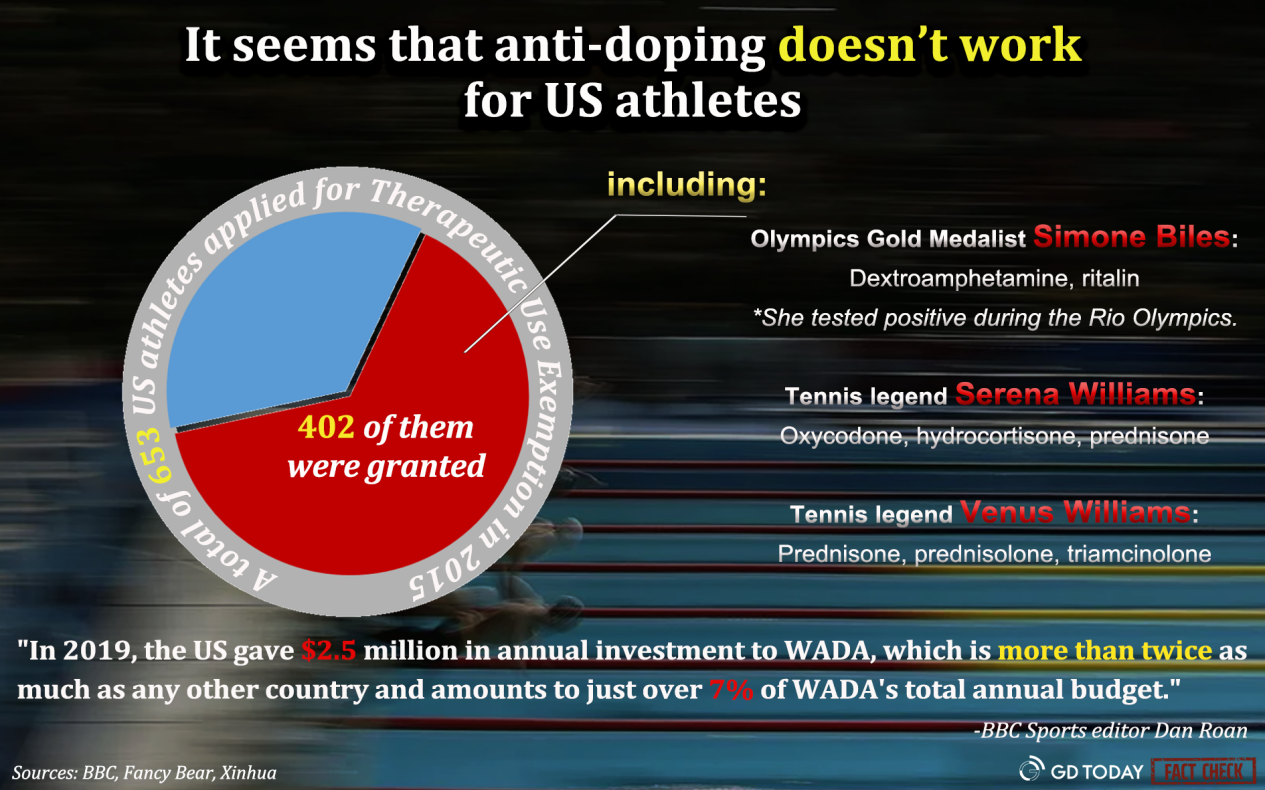
Specifically, American gymnast Simone Biles, who had secured four gold and one bronze medal at the Rio Olympics, tested positive for methylphenidate during the Rio Olympics, but her medals had not been cancelled. Moreover, she was authorized to use dexamphetamine during the period of 2013-14.

Simone Biles won a gold medal at the Paris 2024. (Source: Xinhua)
However, "The Queen of Gymnastics" withdrew from the Tokyo Olympics unexpectedly. Some media said that her key drugs were detained by the strict doping control system of Japanese customs.
Calista Liu, a US flower swimmer, also tested positive for drugs but was exempted because she alleged "accidentally ingested an overdose of eye drops while lying on her father's bed." She won a silver medal at Paris 2024.
In addition, according to China Anti-Doping Agency (CHINADA), the United States sprinter Erriyon Knighton tested positive for doping, but he was attributed to "consuming contaminated meat" and was allowed to participate in the competition.
In a statement published on August 8, CHINADA strongly urges the US to launch an independent investigation into the US athletes who violated the "anti-doping" policy.
Smearing China: result speaks for themselves
On August 1, Pan Zhanle, gold medalist in the 100 meters freestyle, responded to a challenge from a New York Times journalist at the press conference, saying, "I underwent 29 anti-doping tests last year, all of which were negative. I also underwent 21 anti-doping tests from May to July this year, all of which were negative as well."
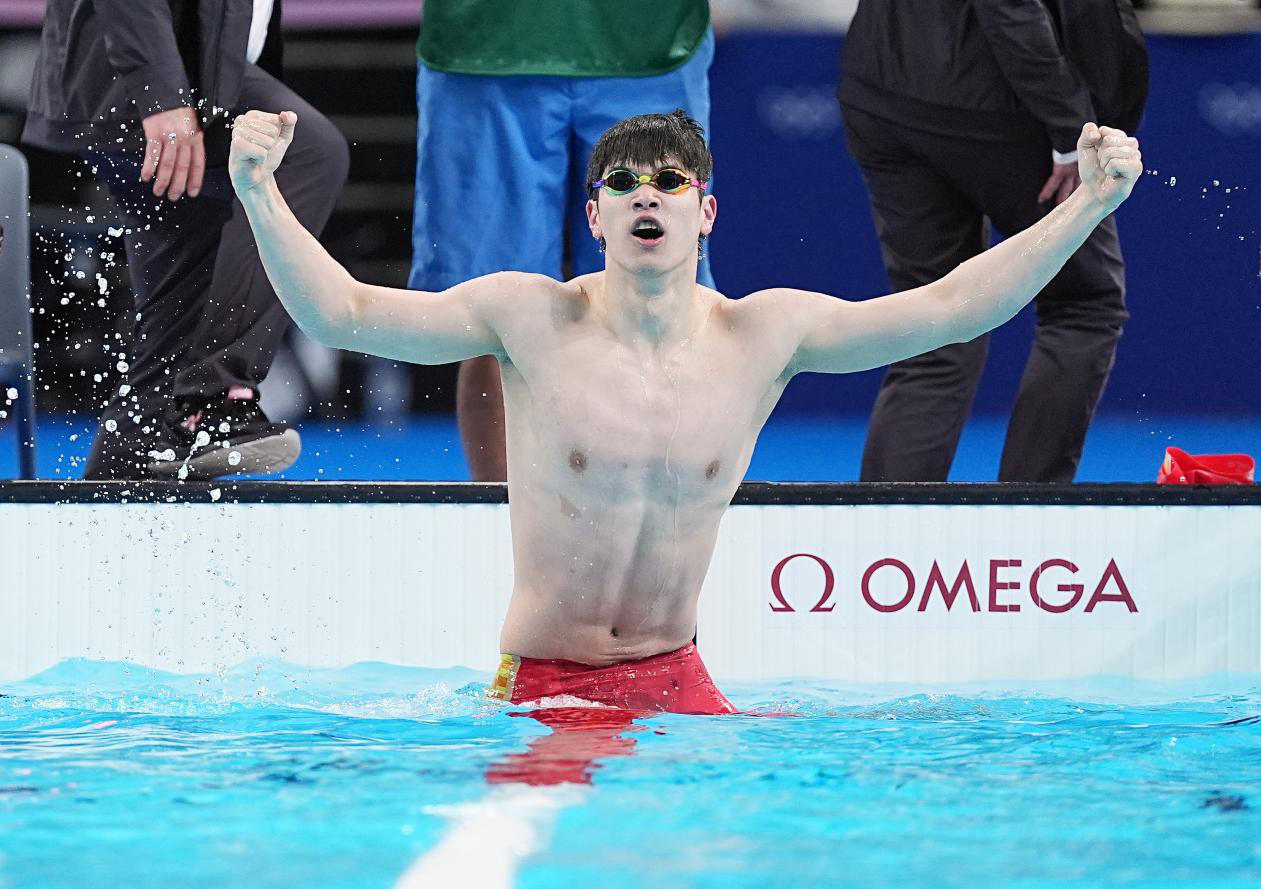
Pan Zhanle, gold medalist in the 100 meters freestyle (Source: Xinhua)
Bronze medalist in the 200 meters individual medley, Wang Shun, also emphasized during the press conference that he had undergone 28 anti-doping tests from May to August 2. "I believe these tests can confirm our preparation for the Olympics," he added.
According to FINA, Chinese swimmers were the most tested athletes during the first half of the year. Including tests conducted by other anti-doping organizations, Chinese swimmers have been tested an average of 21 times since January 1, 2024. In contrast, Australian swimmers have been tested an average of four times during the same period, and USA swimmers an average of six times.
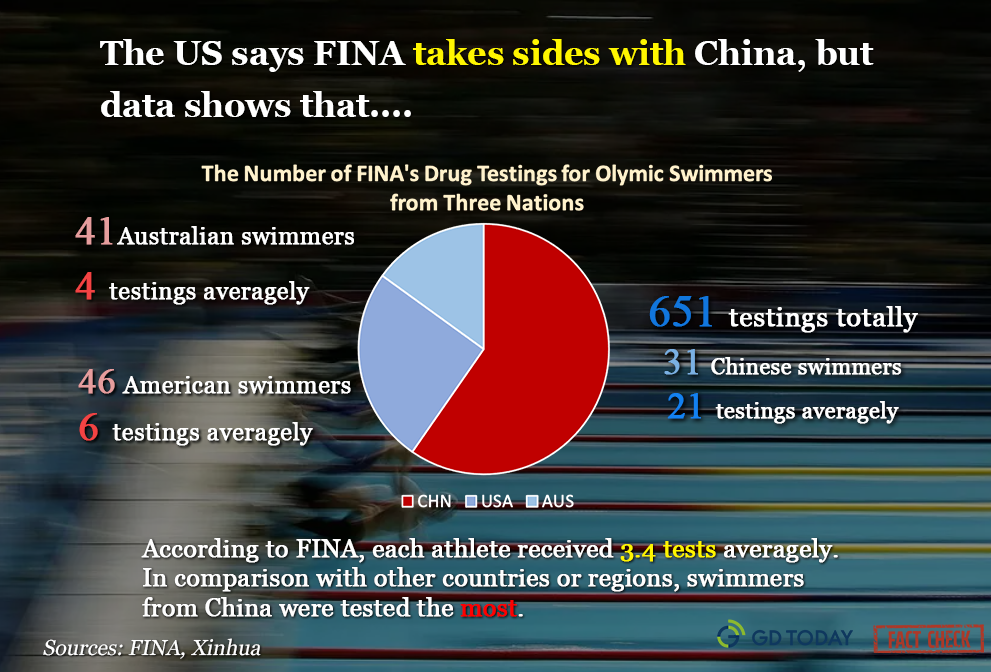
At a press conference during the Olympics, Paul Gasol, an IOC member, took a stand, "multiple times in the early part of the day and night, it's not easy for the athletes, especially because it disrupts rest, training, and other schedules. As an athlete, I appreciate the cooperation of the Chinese swimmers in this case."
The International Testing Agency also admitted that the allegation about Chinese swimmers taking doping by the US media had led to extra testing for the Chinese swimming team.
"US athletes are some of the least tested in the world, and the USADA has used the contamination explanation to clear Americans of positive tests. 90% of American athletes, those in professional leagues and college sports, do not compete under the world anti-doping code," Banka once said openly.
US long arm jurisdiction: a shadow for athletes to attend LA Olympics
At the press conference held by the IOC during the Olympics, Paul Gasol expressed his concern about the Rodchenkov Anti-Doping Act. "There's a big issue when it comes to the Rodchenkov Act," he said sadly.
"The potential ability for US authorities to detain people potentially also, from my understanding, outside of US soil. So this jeopardizes the safety of officials and people in the Olympic movement, in the sports movement," he stressed.
The Rodchenkov Anti-Doping Act was passed by the U.S. Senate on 17 November 2022. The Act extends US law enforcement jurisdiction to any major international sporting competitions that involve American athletes or have financial connections to the U.S., which means the US can detain or sue athletes from all over the world if they are suspected of doping during the game.

The US passed Rodchenkov Anti-Doping Act in 2022. (Source: Xinhua)
According to the Act, the major international sporting competitions include the Olympic Games and FIFA World Cup.
The US Department of Justice also relied on the Act when it opened a criminal investigation into WADA and planned to arrest 23 Chinese swimmers, including Zhang Yufei, Qin Haiyang, and Wang Shun.
Note that the 2028 Los Angeles Olympics, 2034 Winter Olympics, and 2026 FIFA World Cup will be held in the United States. However, who can predict if the US will use this Act as an excuse to arrest athletes from other countries?
Reporter: Yuan Zixiang, Zhan Manqi (intern)
Poster: Lai Meiya
Liang Yinghui (intern), Peng Yuyan (intern), Zhang Mengjiao (intern), Zhang Yuman (intern) also contributed to the story.
















